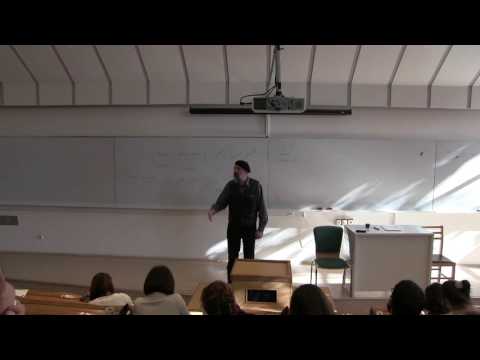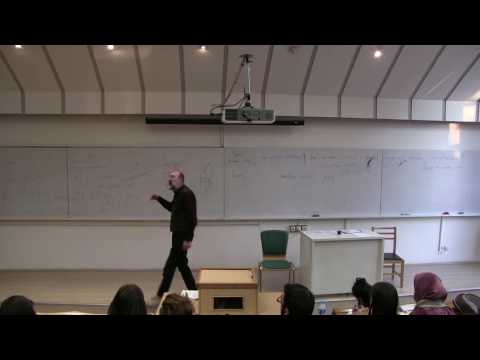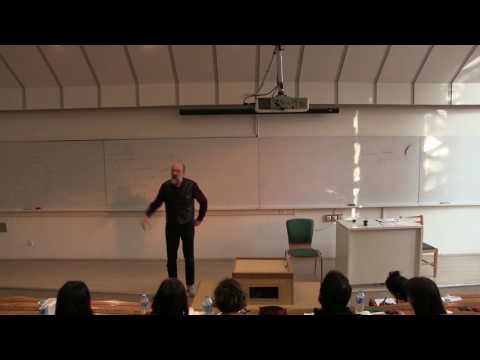1. Clicking ▼&► to (un)fold the tree menu may facilitate locating what you want to find. 2. Videos embedded here do not necessarily represent my viewpoints or preferences. 3. This is just one of my several websites. Please click the category-tags below these two lines to go to each independent website.
2017-01-18
Simon Critchley. Working Class Ballet. 2016
source: European Graduate School Video Lectures 2017年1月16日
http://www.egs.edu Simon Critchley, Professor of Philosophy at The European Graduate School / EGS. Saas Fee, Switzerland August 20 2016.
Simon Critchley is a scholar of continental philosophy and phenomenology, with particular emphasis on Emmanuel Levinas. Much of Critchley’s work examines the crucial relationship between the ethical and political within philosophy. His thinking traverses a variety of genres complimenting his interests in music, humour, and tragedy.
The prolific writer has published and edited twentyeight books to date, many on the works of Emmanuel Levinas, Jacques Derrida, Ernesto Laclau, Martin Heidegger, and Wallace Stevens. Critchley’s works include, among others, Re-Reading Levinas (1991), Deconstructive Subjectivities (1996), Continental Philosophy: A Very Short Introduction (2001), On Humour (2002), On the Human Condition (2005) with Dominique Janicaud and Eileen Brennan, On Heidegger’s Being and Time (2008) with Reiner Schürmann, the slim German volume Der Katechismus des Bürgers (2008, The Catechism of the Citizen, 2009), and Impossible Objects (2011).
Critchley was born in Hertfordshire, England. He obtained his BA from the University of Essex in 1985 and his MA in philosophy with a thesis on Martin Heidegger and Rudolf Carnap from the University of Nice in 1987. In 1988, he received his PhD from the University of Essex with a dissertation on the ethics of deconstruction in the works of Emmanuel Levinas and Jacques Derrida. Simon Critchley then went on to teach at his alma mater in Essex, first as a lecturer in philosophy, then as a reader, and finally, in 1999, as a professor. In 2004, he became a professor at The New School in New York. In addition, Critchley was chosen as a scholar by the prestigious Getty Research Institute and has been a visiting professor in institutions such as the University of Oslo, Cardozo Law School, Tilburg University, and the University of Notre Dame, Indiana.
Lacan and Psychoanalysis (Contemporary Sociology Theory at METU) by Erdoğan Yıldırım
Course: Contemporary Sociology Theory - WEEK 8 - Lacan and Psychoanalysis
Instructor: Assoc. Prof. Erdoğan Yıldırım
For Lecture Notes: http://ocw.metu.edu.tr/course/view.php?id=249
Instructor: Assoc. Prof. Erdoğan Yıldırım
For Lecture Notes: http://ocw.metu.edu.tr/course/view.php?id=249
Lacan and Post-Structuralism (Contemporary Sociology Theory at METU) by Erdoğan Yıldırım
Course: Contemporary Sociology Theory - WEEK 8 - Lacan and Post-Structuralism
Instructor: Assoc. Prof. Erdoğan Yıldırım
For Lecture Notes: http://ocw.metu.edu.tr/course/view.php?id=249
Instructor: Assoc. Prof. Erdoğan Yıldırım
For Lecture Notes: http://ocw.metu.edu.tr/course/view.php?id=249
Rupert Sheldrake: Can Emergence Explain Reality? / Is Consciousness Fundamental?
source: Closer To Truth
 13:38 Rupert Sheldrake - Can Emergence Explain Reality?
13:38 Rupert Sheldrake - Can Emergence Explain Reality?
Is emergence a mystery? Does ordinary stuff have mysterious properties? Take anything; find and separate all its parts and catalogue their properties. Then recombine those parts. What would you get...
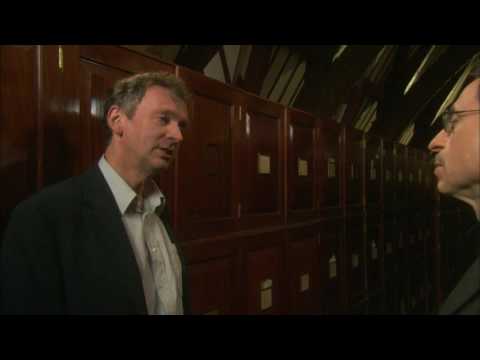 12:12 Rupert Sheldrake - Is Consciousness Fundamental?
12:12 Rupert Sheldrake - Is Consciousness Fundamental?
The great challenge is explain consciousness—the inner experiences of sense, thought, intent, feelings. It's what David Chalmers calls 'The Hard Problem' of consciousness. Is our mental life a rand...
 13:38 Rupert Sheldrake - Can Emergence Explain Reality?
13:38 Rupert Sheldrake - Can Emergence Explain Reality?Is emergence a mystery? Does ordinary stuff have mysterious properties? Take anything; find and separate all its parts and catalogue their properties. Then recombine those parts. What would you get...
 12:12 Rupert Sheldrake - Is Consciousness Fundamental?
12:12 Rupert Sheldrake - Is Consciousness Fundamental?The great challenge is explain consciousness—the inner experiences of sense, thought, intent, feelings. It's what David Chalmers calls 'The Hard Problem' of consciousness. Is our mental life a rand...
What is Self-Awareness? (Closer to Truth)
source: Closer To Truth
'Self awareness' has a simple definition: the mental activity that reflects back on itself, the mental process of being aware of oneself being aware. Is self-awareness a uniquely human trait? Some animals seem to disagree. The deep significance of self-awareness is how on earth can physical processes in physical brains generate self awareness?
 8:05 Roy Baumeister - What is Self-Awareness?
8:05 Roy Baumeister - What is Self-Awareness?
 10:33 Elizabeth Loftus - What is Self-Awareness?
10:33 Elizabeth Loftus - What is Self-Awareness?  7:19 Thalia Wheatley - What is Self-Awareness?
7:19 Thalia Wheatley - What is Self-Awareness?
 8:05 Roy Baumeister - What is Self-Awareness?
8:05 Roy Baumeister - What is Self-Awareness? 10:33 Elizabeth Loftus - What is Self-Awareness?
10:33 Elizabeth Loftus - What is Self-Awareness?  7:19 Thalia Wheatley - What is Self-Awareness?
7:19 Thalia Wheatley - What is Self-Awareness?What is God? (Closer to Truth)
source: Closer To Truth
To assess whether God exists, we must ask what kind of God is supposed to exist? But can humans probe God? Can we inquire into God's essence and nature? Is God at all knowable? Or forever beyond human understanding?
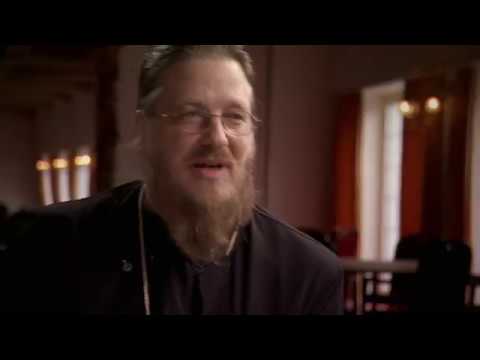 3:14 John Behr - What is God?
3:14 John Behr - What is God?
 9:29 J. L. Schellenberg - What is God?
9:29 J. L. Schellenberg - What is God?
 4:17 Subhash Kak - What is God?
4:17 Subhash Kak - What is God?
 3:14 John Behr - What is God?
3:14 John Behr - What is God? 9:29 J. L. Schellenberg - What is God?
9:29 J. L. Schellenberg - What is God? 4:17 Subhash Kak - What is God?
4:17 Subhash Kak - What is God?Martin J. Murray - Re-Urbanism in Africa: Building Cities from Scratch
source: Yale University 2016年12月5日
Martin Murray is a tenured full professor of the Taubman College urban planning faculty. He began his academic career as sociologist with a strong foundation in urban geography. His current research engages the fields of urban studies and planning, global urbanism, cultural geography, distressed urbanism, development, historical sociology, and African studies. In addition to six books and three co-edited volumes, he has produced close to seventy journal articles and book chapters that focus on diverse geographical areas of the world at different historical periods. Professor Murray has completed two books on city building and spatial politics in Johannesburg after apartheid. His current research focuses on two fields of inquiry: first, the trajectories of global urbanism at the start of the 21st century; and second, the turn toward master-planned, holistically-designed "private cities" built from scratch, especially those currently under construction or in the planning stages in urban Africa. In Taubman College, Professor Murray contributes significantly to the "Planning in Developing Countries" concentration offered by the Urban and Regional Planning Program. Professor Murray allows the Urban and Regional Planning Program to expand its developing-country course offerings, and affords the program expertise in African urban development policy. He is also affiliated with the Department of African-American and African Studies (DAAS) in the College of Literature, Science, and the Arts.
For more information, please visit: http://pier.macmillan.yale.edu/summer...
Project Starshot: Visiting the Nearest Star Within Our Lifetime
source: Harvard University 2016年12月9日
The nearest star to the Sun, Proxima, was discovered this year to host an Earth mass planet in its habitable zone. Proxima is only 4.24 light years away. Can a camera fly by this planet to find out whether there is life on it? Starshot is a new project aimed to develop the technology that will enable to launch a spacecraft at a fifth of the speed of light, so that it will reach Proxima within our generation. The concept is based on a high power (100GW scale) laser beam pushing a lightweight (gram scale) sail, attached to a chip containing a miniaturized camera, communication and navigation devices. The feasibility study phase of the project had just started at a funding level of $100M for the next 5-10 years, with CfA participation.
Planet Nine from Outer Space - K. Batygin - 12/7/2016
source: caltech 2016年12月12日
"Planet Nine from Outer Space" - Konstantin Batygin, Assistant Professor of Planetary Science, Caltech
Learn more about:
- Konstantin Batygin's research: http://web.gps.caltech.edu/~kbatygin
- 2016 - 17 Watson Lecture Series Season: https://www.caltech.edu/master-calend...
- This Lecture: https://www.caltech.edu/content/konst...
Produced in association with Caltech Academic Media Technologies. ©2016 California Institute of Technology
Algorithm Design and Analysis (UC Davis)
# click the upper-left icon to select videos from the playlist
source: UC Davis Academics 2014年10月17日
The purpose of this undergraduate course is to introduce fundamental techniques and viewpoints for the design and the analysis of efficient computer algorithms, and to study important specific algorithms. The course relies heavily on mathematics and mathematical thinking in two ways: first as a way of proving properties about particular algorithms such as termination, and correctness; and second, as a way of establishing bounds on the worst case (or average case) use of some resource, usually time, by a specific algorithm. The course covers some randomized algorithms as well as deterministic algorithms.
Printed course material: www.cs.ucdavis.edu/~gusfield/itunesU
More advanced lectures: www.cs.ucdavis.edu/~gusfield/cs222f07/videolist.html
Introduction to the videos 2:26
Introduction to the course and algorithm complexity 49:07
Big-Oh, Omega and Theta notation 48:20
Time analysis of Mergesort 49:58
A more complex recurrence relation and counting inversions 52:49
Counting inversions; Fast integer multiplication 48:12
Fast integer multiplication, randomized selection and median finding 48:11
More on randomized selection and median finding 52:14
Expected number of comparisons in randomized select 50:11
Greedy algorithms: Picking largest set of non-overlapping intervals 50:31
Greedy algorithms: The classroom scheduling problem 16:36
Dijkstra's shortest path algorithm 51:42
Start of minimum spanning tree problem 49:35
Correctness of Kruskal's algorithm. 26:42
Recursive programming and memoization 47:38
Intro to dynamic programming, weighted interval problems 49:37
Intro to the RNA folding problem and recurrences 50:09
Dynamic programming for RNA folding. 49:36
Dynamic programming for shortest path problem 37:30
Floyd-Warshall algorithm for all-pairs shortest path 48:29
The unique-decipherability problem 52:20
Unique-Decipherability. Graph algorithm and proof of correctness 51:20
Linear-time pattern matching. Z-values and Z-algorithm 51:46
Finish of linear-time pattern matching 51:36
Introduction to approximation algorithms 47:52
Introduction to P and NP 50:08
An intuitive view of NP 48:03
Formal definition of P and NP 45:30
Major theorems of NP-completeness 50:27
Coping with NP-completeness 39:37
source: UC Davis Academics 2014年10月17日
The purpose of this undergraduate course is to introduce fundamental techniques and viewpoints for the design and the analysis of efficient computer algorithms, and to study important specific algorithms. The course relies heavily on mathematics and mathematical thinking in two ways: first as a way of proving properties about particular algorithms such as termination, and correctness; and second, as a way of establishing bounds on the worst case (or average case) use of some resource, usually time, by a specific algorithm. The course covers some randomized algorithms as well as deterministic algorithms.
Printed course material: www.cs.ucdavis.edu/~gusfield/itunesU
More advanced lectures: www.cs.ucdavis.edu/~gusfield/cs222f07/videolist.html
Introduction to the videos 2:26
Introduction to the course and algorithm complexity 49:07
Big-Oh, Omega and Theta notation 48:20
Time analysis of Mergesort 49:58
A more complex recurrence relation and counting inversions 52:49
Counting inversions; Fast integer multiplication 48:12
Fast integer multiplication, randomized selection and median finding 48:11
More on randomized selection and median finding 52:14
Expected number of comparisons in randomized select 50:11
Greedy algorithms: Picking largest set of non-overlapping intervals 50:31
Greedy algorithms: The classroom scheduling problem 16:36
Dijkstra's shortest path algorithm 51:42
Start of minimum spanning tree problem 49:35
Correctness of Kruskal's algorithm. 26:42
Recursive programming and memoization 47:38
Intro to dynamic programming, weighted interval problems 49:37
Intro to the RNA folding problem and recurrences 50:09
Dynamic programming for RNA folding. 49:36
Dynamic programming for shortest path problem 37:30
Floyd-Warshall algorithm for all-pairs shortest path 48:29
The unique-decipherability problem 52:20
Unique-Decipherability. Graph algorithm and proof of correctness 51:20
Linear-time pattern matching. Z-values and Z-algorithm 51:46
Finish of linear-time pattern matching 51:36
Introduction to approximation algorithms 47:52
Introduction to P and NP 50:08
An intuitive view of NP 48:03
Formal definition of P and NP 45:30
Major theorems of NP-completeness 50:27
Coping with NP-completeness 39:37
Introduction to Biophotonics (Winter 2009 at UC Davis)
# click the upper-left icon to select videos from the playlist
source: UC Davis Academics 2014年10月24日
This course targets freshmen students that are part of the Integrated Studies Program. It is a basic interdisciplinary exploration of the intersection of biology, physics, optics and technology with light. In addition to getting an overview of the science of biophotonics, doing hands-on experiments, and interacting with Center for Biophotonics, Science and Technology scientists, the students have projects on how to communicate this new technology to middle and high school students and the general public.
Basic Molecular Biology 59:11 This is the introductory class to biophotonics and the Center for Biophotonics Science and Technology, UC Davis.
Cancer and Biophotonics 47:41
Introduction, Center for Biophotonics Science and Technology Overview 1:32:15
Light Sources and Interaction with Matter 1:17:30
Light/Tissue Interactions 1:07:54
Tools for Biophotonics 1:44:00
Overview of CBST Science Program 1:39:25
Fluorescence and Uses for Studying Model Organisms 51:21
Hands-on Spectrophotometry with Light Sources 1:25:30
Bioluminescence, Tagging Living Organisms 1:44:44
Intern Panel, Internship program overview, Presentation debrief 1:00:26
source: UC Davis Academics 2014年10月24日
This course targets freshmen students that are part of the Integrated Studies Program. It is a basic interdisciplinary exploration of the intersection of biology, physics, optics and technology with light. In addition to getting an overview of the science of biophotonics, doing hands-on experiments, and interacting with Center for Biophotonics, Science and Technology scientists, the students have projects on how to communicate this new technology to middle and high school students and the general public.
Basic Molecular Biology 59:11 This is the introductory class to biophotonics and the Center for Biophotonics Science and Technology, UC Davis.
Cancer and Biophotonics 47:41
Introduction, Center for Biophotonics Science and Technology Overview 1:32:15
Light Sources and Interaction with Matter 1:17:30
Light/Tissue Interactions 1:07:54
Tools for Biophotonics 1:44:00
Overview of CBST Science Program 1:39:25
Fluorescence and Uses for Studying Model Organisms 51:21
Hands-on Spectrophotometry with Light Sources 1:25:30
Bioluminescence, Tagging Living Organisms 1:44:44
Intern Panel, Internship program overview, Presentation debrief 1:00:26
Conor Gearty| Human Rights after Brexit: still on fantasy island?
source: London School of Economics and Political Science 2016年12月13日
Speaker(s): Professor Conor Gearty
Respondent(s): Professor Sionaidh Douglas Scott, Professor Steve Peers
Chair: Dr Emmanuel Melissaris
Recorded on 8 December 2016 at Sheikh Zayed Theatre, New Academic Building
As Home Secretary, Theresa May was more hostile to human rights than was any other cabinet minister in David Cameron's government. Now as Prime Minister she must not only make a definitive decision about where human rights fit in her vision of Britain but also whether they can have any place at all in light of the need to reconstruct Brexit Britain. Is this another piece of European clutter than needs now to be thrown out? Does the Human Rights Act get in the way of negotiating Brexit with the EU? Might it even prevent radical change on for eg immigration after Brexit is achieved? Or as many Tories have long argued, is the answer a new bill of rights for Britain? Or perhaps the answer is no change at all - might a defiantly unrepealable Human Rights Act be our lifeline to a civilised Continent, preserved until the country comes to its senses and returns to the European family?
Conor Gearty launches his new book On Fantasy Island: Britain, Europe and Human Rights.
Conor Gearty (@conorgearty) is Director of the Institute of Public Affairs and Professor of Human Rights Law at LSE.
Sionaidh Douglas-Scott is Professor of European and Human Rights Law at the University of Oxford.
Steve Peers (@StevePeers) is Professor of EU Law & Human Rights Law at the University of Essex.
Sir Stephen Sedley was a judge of the Court of Appeal of England and Wales from 1999 to 2011 and is currently is a visiting professor at Oxford.
LSE Law (@lselaw) is an integral part of the School's mission, plays a major role in policy debates & in the education of lawyers and law teachers from around the world.
Keep up to date with what Brexit means for the UK and the wider world at LSE Brexit blog (@lsebrexitvote).
Migrants and healthcare: educating tomorrow's doctors for a global challenge (Dr Anita Berlin)
source: UCL Lunch Hour Lectures 2016年12月20日
The relationship between migrants and the NHS is long, complex and, as recently seen, highly political. This lecture considers the role of doctors in the care of vulnerable migrants, within and outside of the NHS, and the role of medical schools in preparing doctors for their duty to these individuals.
The Power of Persuasion with Robert Cialdini
source: The RSA 2016年12月5日
The Power of Persuasion with Robert Cialdini, the godfather of influence. Cialdini’s latest research shows that the secret to persuasion doesn’t lie in the message itself, but in the key moment before that message is delivered. He explains that the best persuaders spend more time crafting what they do and say before making a request. Cialdini calls this pre-suasion. In other words, to change minds most effectively, a pre-suader must change initial “states of mind.”
Watch Robert Cialdini, author of 'Influence' and social psychologist, in our latest RSA Spotlight - the edits which take you straight to the heart of the event! Loved this snippet? Watch his full speech here: https://youtu.be/_hem3-8XbEI
Follow the RSA on Twitter: https://twitter.com/RSAEvents
Like RSA Events on Facebook: https://www.facebook.com/RSAEventsoff...
Listen to RSA podcasts: https://soundcloud.com/the_rsa
See RSA Events behind the scenes: https://instagram.com/rsa_events/
John Simpson: "The Word Detective" | Talks at Google
source: Talks at Google 2016年12月16日
John Simpson, “the man who transformed the Oxford English Dictionary”, recently retired as editor of the OED. Here, he guides us through its history with charmingly laconic wit. In The Word Detective, an intensely personal memoir and a joyful celebration of English, he weaves a story of how words come into being (and sometimes disappear), how culture shapes the language we use, and how technology has transformed not only the way we speak and write but also how words are made.
Mental Causation by Marianne Talbot
source: Philosophical Overdose 2016年12月18日
Marianne Talbot gives the final talk in a series on the nature of causation at Oxford. This talk explores the relation of mind and body, and the problem of mental causation...
Causation is an important concept that we all use in ordinary, everyday life, as well as in science. Causation is so important in fact that it has been said that: “With regard to our total conceptual apparatus, causation is the centre of the centre”, and it has been called called ‘the cement of the universe’. But what exactly is causation? In these lectures, the most influential theories of causation are introduced, as well as the motivations for them, the arguments behind them, and the problems they face.
https://www.youtube.com/playlist?list...
This is from the University of Oxford -- Creative Commons.
Subscribe to:
Comments (Atom)
